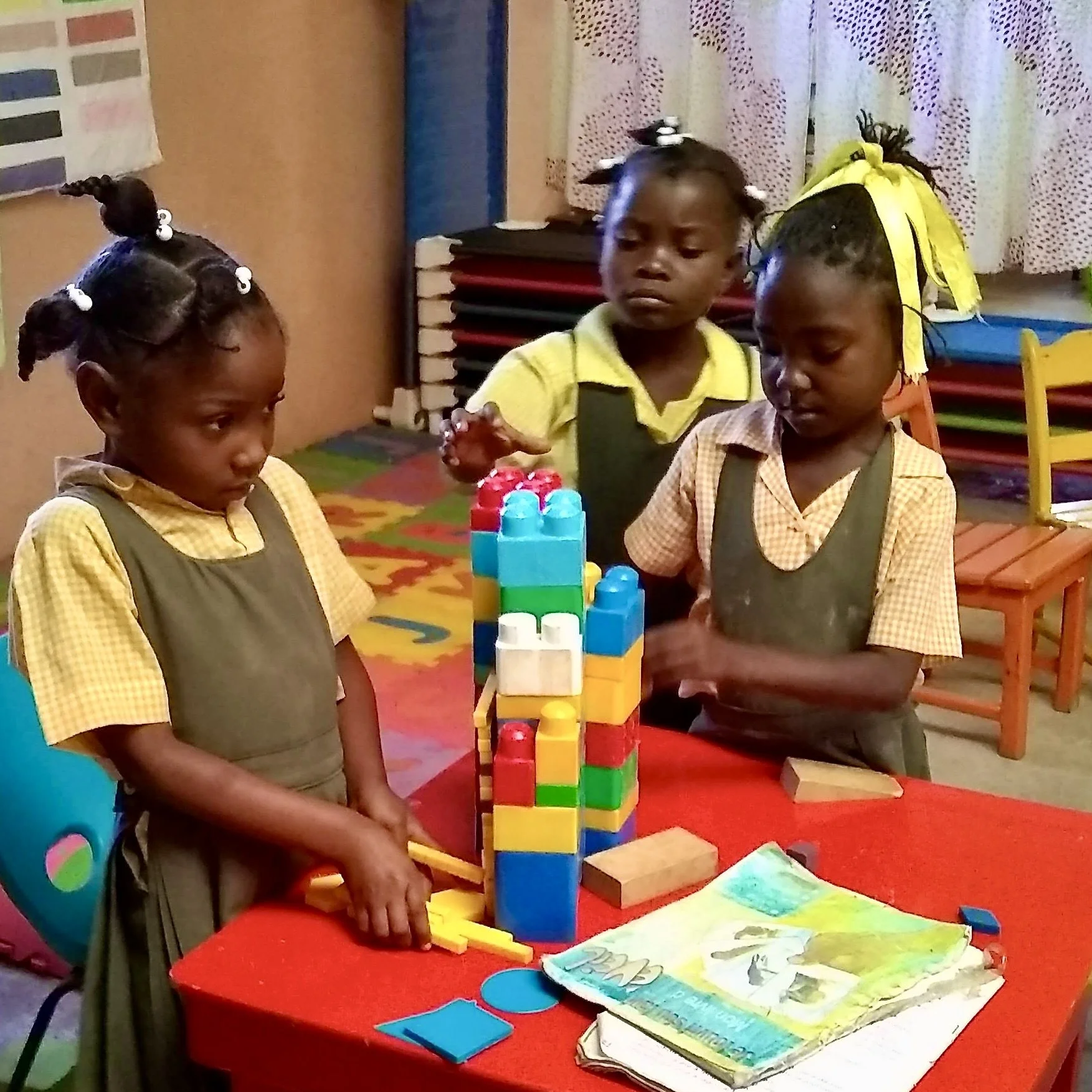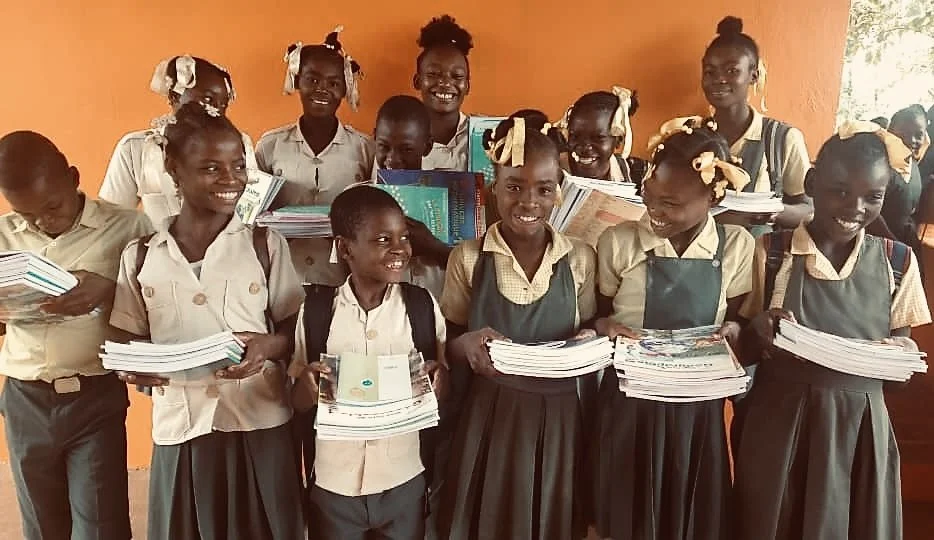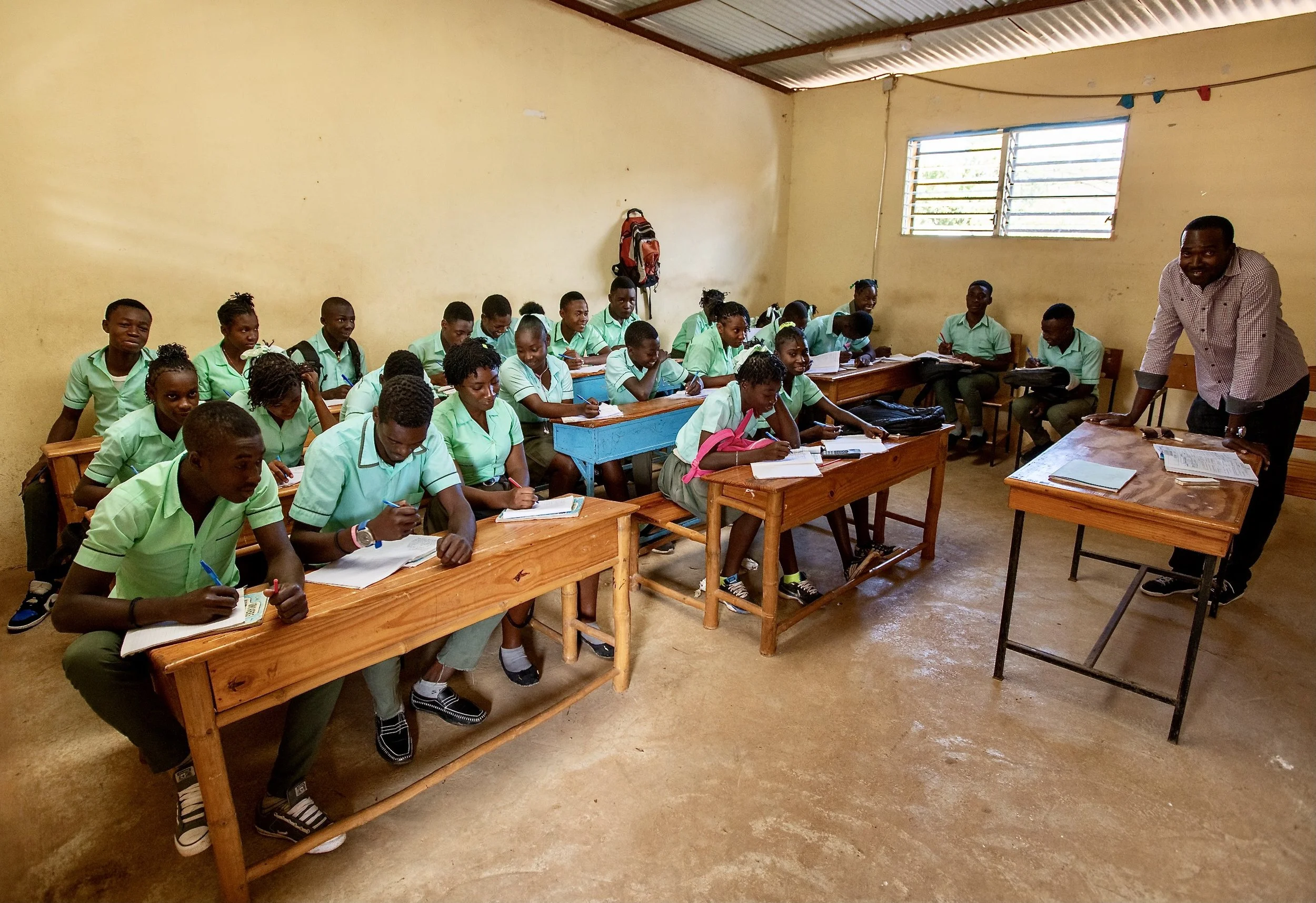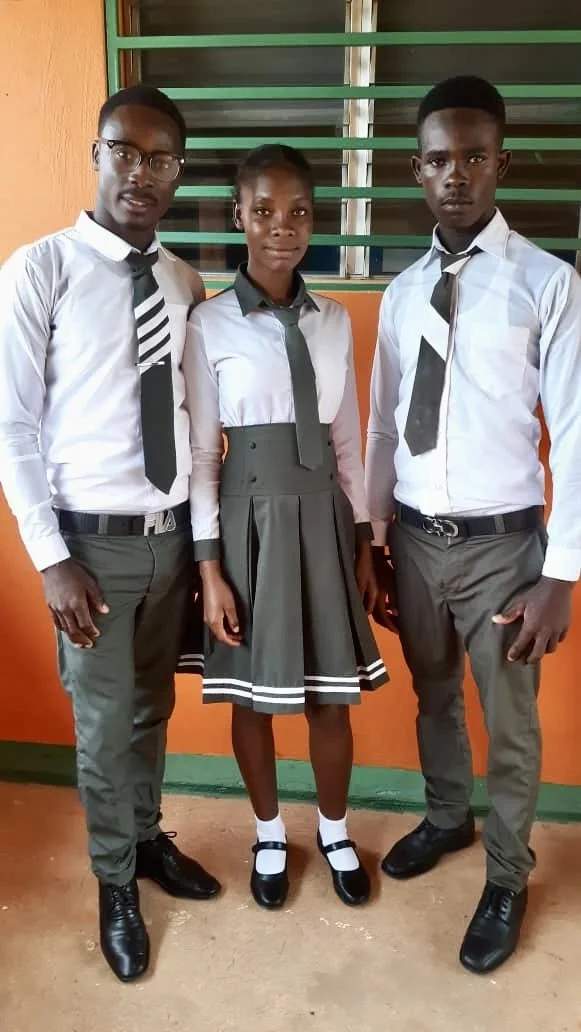
Education
Since 2007 we have made it our mission to see that all in the community have equal access to a quality education. Our The school complex has remained opened throughout these past difficult and uncertain years as a safe haven for learning. We are also proud that more than half of our student population is female. We are raising a generation of young women and men who have a strong sense of self, and have opportunities to careers that offer them purpose and economic independence.
2008 • Working with a local committee consisting of parents, teachers, administrators, students, and community members, FOHNY developed a mission for projects and initiatives in the areas of education, health, environment and economic development.
2009 • Initial four-classroom building completed, serving primary school aged children; Funded by Diputación de Sevilla (Government of Seville, Spain).
2012 • Centre de Formation Educative of Bois Tombé expanded to 10 classrooms in three buildings accommodating 300 students grades Pre-K - 6.
2013 • School kitchen and cafeteria completed and outfitted, serving one meal each day.
* Our first 6th grade class took and passed their certificate exam, making them eligible to enter a middle school program.
2014 • Six classrooms completed for grades 7 - 13 .(Baccalaureate). Funded by Digicel Haiti Foundation .
2016 • School accredited by Haitian Ministry of Education
2024 * The” Pequeño Wilson” Early Childhood Center completed.
First High School Graduating Class 2023 2024 - 2025 Ninth Graders
Our school did not yet have a high school component when our first Ninth graders were promoted, so we acquired scholarships for them to continue their studies in the city. Since then, students have gone on to learn a trade in vocational schools, 2 have graduated from nursing school, 2 are studying civil engineering, 1 graduated from Teachers College, and 1 was awarded a 4-year scholarship to study agronomy in Earth University in Costa Rica. We are proud of all of them.
Wilson Anestil is studying agronomy in Costa Rica.
Archelande Chéry graduated from Nursing School.
Patricia Jeanlestin graduating from Nursing School.
Jiguel Anestil, Wilson’s brother, here with their mother, is studying civil engineering.
Every year since 2009, we’ve added a grade and are now up to the 13th grade (Baccalaureate). As of 2016 we have sent 6 groups of 25 ninth graders respectively, to take the national high school entry test with a success rate of over 80%.
In 2023 our first high school graduating class took the college entrance exams.
Jean Hubert is in his last year of studying to be a civil engineer.
Guerdy Pierre is attending Teacher’s College.






















